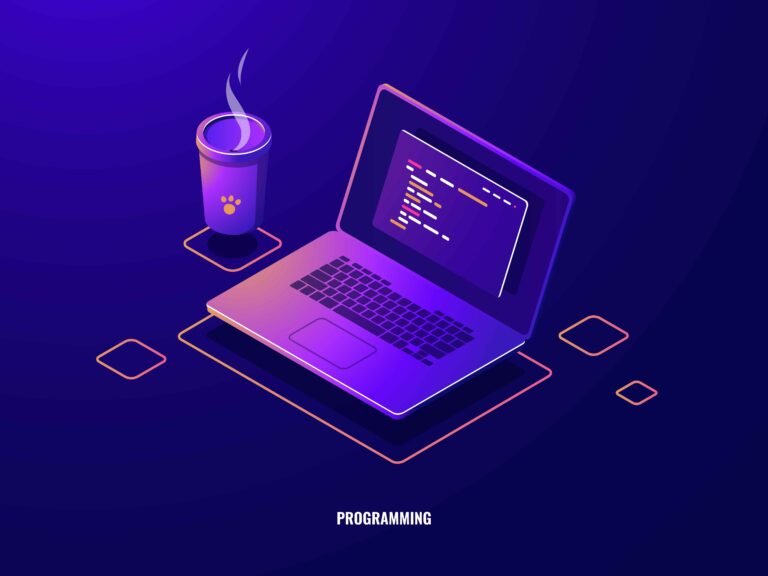Local SEO vs National SEO: Which is Right for Your U.S. Business?
The Day I Realized Most Businesses Are Doing SEO Completely Wrong
Last Tuesday, I got a call that made my stomach drop.
Maria runs a small accounting firm in Tampa. She’d been paying an SEO company $4,000 a month for eight months. Their big strategy? Getting her to rank for “accounting services” – nationally. You know, competing with H&R Block and every CPA firm in America.
Meanwhile, when people in Tampa searched for “tax preparer near me” or “CPA Tampa,” Maria was nowhere to be found. Her own neighbors couldn’t find her business online.
Eight months. Thirty-two thousand dollars. Zero new local clients from SEO.
This isn’t unusual. I see this mistake constantly. Business owners getting sold the wrong SEO strategy because it sounds more impressive or because the agency doesn’t know better.
Here’s what I’ve learned after helping over 200 businesses figure out their SEO strategy at Digizaro: Most small businesses need local SEO, not national SEO. But everyone wants to “go big” and compete nationally.
Let me explain when you actually need each approach, and more importantly, how to avoid wasting money on the wrong one.
Local SEO vs National SEO: The Simple Truth
Local SEO: Owning Your Backyard
Local SEO is about getting found when people near you search for what you do. That’s it.
When someone types “dentist near me” or “plumber 33101” or “best tacos downtown,” you want to show up. These people are ready to buy, they’re close to you, and they’re perfect customers.
You need local SEO if:
- People visit your physical location
- You go to customers’ locations to provide service
- Your customers care about how close you are to them
Think restaurants, dentists, contractors, hair salons, gyms, auto repair shops. If distance matters to your customers, local SEO is your lifeline.
National SEO: Competing with Everyone
National SEO means trying to rank when location doesn’t matter. Someone in Seattle and someone in Miami searching for the same thing – you want to show up for both.
You need national SEO if:
- You sell products online and ship everywhere
- You provide services that can be done remotely
- Location doesn’t matter to your customers at all
Think software companies, online courses, e-commerce stores, consulting firms that work virtually.
The catch? National SEO is brutally competitive and expensive. You’re fighting against every business in America (and often the world) for the same keywords.
Real Stories from My Digizaro Experience
Why Local SEO Works: Tom’s HVAC Story
Tom owns an HVAC company in Phoenix. When I met him two years ago, he was spending $5,000 monthly trying to rank for “air conditioning repair” nationally. His website got traffic from people in New York asking if he traveled there for service.
We switched his focus to Phoenix-specific searches: “AC repair Phoenix,” “HVAC emergency 85001,” “furnace service Scottsdale.”
Six months later, his phone won’t stop ringing. He’s booked three weeks out. His revenue doubled, and he cut his SEO budget in half.
The difference? He stopped competing with every HVAC company in America and started dominating his actual service area.
Why National SEO Works: Sarah’s Course Business
Sarah teaches people how to flip houses through online courses. Geography doesn’t matter – a real estate investor in Texas can learn the same strategies as one in Maine.
She was wasting time on local SEO because she lives in Denver and someone told her to optimize for “real estate courses Denver.” But her customers aren’t looking for local real estate education – they want the best training, period.
We shifted to national keywords: “how to flip houses,” “real estate investing course,” “house flipping training.” Now she has students in 40+ states and makes seven figures annually.
How to Know Which One You Need (The Real Test)
Look at Your Last 50 Customers
Where did they come from? Be honest.
If 80% are within 30 miles of your business → You need local SEO If they’re spread across multiple states → You need national SEO If it’s mixed → Start with local, it’s easier and cheaper
Ask Yourself: Does Distance Matter?
Distance matters when:
- People need to visit your location
- You provide hands-on services
- Emergency or urgent need is involved
- Building personal relationships is important
Distance doesn’t matter when:
- Everything happens online or over the phone
- You ship products nationwide
- Your expertise is rare and people will work with you regardless of location
- You sell digital products or information
Be Brutal About Your Budget
Local SEO: $1,000-$5,000/month gets real results National SEO: $5,000-$20,000/month in competitive industries
If you don’t have national SEO budget, don’t try national SEO. You’ll just waste money competing with companies that outspend you 10-to-1.
Local SEO: What Actually Moves the Needle
I’ve tried every local SEO tactic over the past decade. Here’s what actually works:
Google Business Profile Is Everything
This isn’t optional. It’s literally how people find local businesses now.
What I do for every Digizaro client:
- Complete every single section (seriously, every field)
- Add photos weekly – inside the business, team members, work in progress
- Post updates about specials, events, or news
- Respond to every review within 24 hours
- Keep hours updated, especially during holidays
Case study: A pizza place in Miami went from 100 profile views per week to over 800 just by posting fresh photos and updates consistently.
Reviews Are Make-or-Break
People trust online reviews like personal recommendations. But most businesses just hope reviews happen naturally.
My system:
- Ask every satisfied customer for a review (yes, every single one)
- Send follow-up emails with direct links to review sites
- Respond to ALL reviews – good and bad
- Never argue with negative reviewers, just try to help
Real example: A dentist client went from 12 reviews to 150+ in one year just by asking consistently. New patient calls increased 60%.
Local Keywords People Actually Use
Stop trying to rank for generic terms. Focus on how people really search:
Instead of “restaurant” target:
- “Mexican food downtown Nashville”
- “Best lunch near Music Row”
- “Tacos open late 37203”
Instead of “lawyer” target:
- “Personal injury attorney Tampa”
- “DUI lawyer near me”
- “Divorce attorney Hillsborough County”
Content That Helps Your Community
Don’t just write about your services. Write about your area:
- “Best family activities in [your city]”
- Local event coverage and sponsorships
- “[Your service] tips for [local climate/conditions]”
- Community involvement stories
National SEO: The Long, Expensive Game
National SEO isn’t harder because it’s more complex – it’s harder because you’re competing with everyone.
You Need Tons of Content
Local businesses can succeed with a few great pages. National SEO requires publishing constantly:
- 2-4 comprehensive blog posts weekly
- Industry guides and resource pages
- Video content for YouTube
- Tools, calculators, or other useful resources
Example: One of our Digizaro clients publishes 3 detailed articles weekly about digital marketing. After 18 months, they rank for over 500 industry keywords.
Technical Stuff Matters More
Local customers might forgive a slow website. National competitors won’t give you that luxury:
- Site speed under 2 seconds
- Perfect mobile experience
- Clean, logical site structure
- Schema markup for rich snippets
Link Building Is Crucial (and Hard)
Other websites linking to yours tells Google you’re legit. But earning quality links nationally is tough:
- Guest posting on industry blogs
- Creating research studies or surveys
- Building relationships with industry influencers
- Getting mentioned in trade publications
This stuff takes months or years to pay off.
When You Need Both (The Hybrid Approach)
Some businesses serve both local and distant customers. Law firms are perfect examples – they take local cases but also get referrals from other states.
How to split your effort:
- Start with whichever brings 70%+ of your revenue
- Master that approach first
- Add the other gradually
Example: A marketing agency might target “marketing agency [city]” locally while also going after “email marketing services” nationally.
The Money Talk: What This Actually Costs
Let me give you real numbers from what we charge at Digizaro and what I see elsewhere:
Local SEO Investment:
- Single location business: $1,500-$4,000/month
- Multiple locations: $3,000-$8,000/month
- DIY approach: $500-$1,500/month (mostly your time)
- Timeline: 3-6 months to see real results
National SEO Investment:
- Competitive industries: $8,000-$25,000/month
- Less competitive niches: $4,000-$10,000/month
- Timeline: 12-24 months for competitive keywords
Reality Check:
If you can’t commit to at least 12 months and the minimum budget, don’t start. SEO isn’t a quick fix.
Mistakes That Kill Results (I’ve Made Most of These)
Trying to Do Both at Once
I used to think more keywords = better results. Wrong. Splitting focus means mediocre results everywhere.
Pick one approach. Master it. Then expand.
Targeting Keywords You Think Sound Good
Business owners love fancy industry jargon. Customers don’t search that way.
What you think: “Automotive service facility” What they search: “Car repair near me”
Expecting Overnight Results
SEO is slow. Anyone promising quick results is lying or using tactics that will hurt you long-term.
Ignoring Mobile Users
Over 70% of local searches happen on phones. If your site doesn’t work perfectly on mobile, you’re toast.
Getting Started This Week
For Local SEO:
Monday: Claim and optimize your Google Business Profile completely Tuesday: Ask your last 10 customers for reviews Wednesday: Research what local keywords your customers actually use Thursday: Update your website with those local keywords Friday: Take 20+ high-quality photos of your business
For National SEO:
Monday: Research your top 10 competitors and see what keywords they rank for Tuesday: Audit your website speed and mobile experience Wednesday: Plan your first month of content topics Thursday: Start reaching out to industry blogs for guest posting Friday: Set up proper analytics and tracking
How to Know If It’s Working
Local SEO Success Metrics:
- More phone calls from Google searches
- People asking for directions to your business
- Increased foot traffic
- Reviews mentioning they found you online
- Ranking for “[your service] near me” searches
National SEO Success Metrics:
- Steady increase in organic website traffic
- Leads from states you’ve never worked in before
- Ranking for your main industry keywords
- Other websites mentioning or linking to you
- Brand searches (people searching your company name)
When to Hire Help vs Do It Yourself
DIY makes sense when:
- You have time to learn and implement consistently
- Your local competition isn’t very sophisticated
- Budget is tight but you can invest time
Hire professionals when:
- You don’t have 10+ hours weekly for SEO
- Your competitors are dominating search results
- You’ve tried for 6+ months without results
- You need technical fixes you can’t handle
At Digizaro, we usually recommend businesses try the basics first. It helps you understand what SEO involves and makes you a smarter buyer if you decide to hire help later.
The Truth About SEO Agencies
Most SEO companies will try to sell you what makes them the most money, not what’s best for your business.
Red flags:
- Promising first-page rankings in 30 days
- Focusing on vanity metrics like “keyword rankings”
- One-size-fits-all packages
- Not asking about your customers or business model
Good signs:
- Asking lots of questions about your business
- Explaining the difference between local and national SEO
- Showing case studies from similar businesses
- Being honest about timelines and challenges
My Final Recommendation
Stop overcomplicating this decision.
If your customers are mostly local, focus on local SEO. If your customers are mostly national, focus on national SEO.
Don’t try to be everything to everyone. Pick the approach that matches how your business actually works, commit to it for at least a year, and execute consistently.
The businesses winning with SEO aren’t the ones with the fanciest strategies – they’re the ones that understand their customers and consistently help them find solutions.
Need help deciding which approach is right for your business? At Digizaro, we’ve helped hundreds of U.S. businesses make this exact decision. We start with understanding your customers, your goals, and your budget – then build a strategy that actually makes sense.
Don’t waste months (and thousands of dollars) on the wrong approach. Get it right from the start.
Ready to dominate your market? Contact Digizaro today and let’s build an SEO strategy that drives real results for your business.







